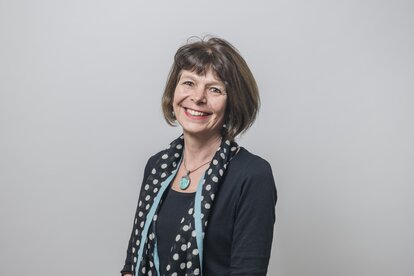As part of my handing-over to my successor, Agnieszka Kroskowska, the two of us were in Ethiopia last week for a gender and social equity regional workshop, attended by staff from Madagascar, Mozambique and Tanzania as well as Ethiopia. Also with us were three staff from two of our partner organisations under Alliance 2015: the Czech organisation PIN, and German Agro Action. We always try to include a field day in our workshops, to ground discussions in reality – so a week ago today I was part of the group visiting the AIRWASH (Amhara Integrated Rural Water, Sanitation and Hygiene) project. With Team Leader Nigussie Mihretu, we travelled to the village of Mehal Keratit, a community of 20 households some two hour’s drive plus an hour’s walk from the Amhara regional capital of Bahir Dar. The project works in close collaboration with the local government authorities, notably the Woreda (District) Women and Children Affairs; Water, Irrigation and Energy; and Health Offices. AIRWASH has specifically focused on more remote villages, where sanitation and hygiene was particularly poor.
Project activities in Mehal Keratit only began a year ago, but current AIRWASH funding – through the Swiss Water & Sanitation Consortium and thus ultimately the Swiss Agency for Development and Cooperation, SDC as well as the Millennium Water Alliance – ends in June 2017. Of this the villagers were well aware, perhaps serving as an incentive to achieve results quickly, although their palpable enthusiasm may also be explained in part by the lack of any previous externally funded development interventions in the area. Through the provision of non-local materials and technical advice, AIRWASH supported the construction of a tube well for drinking water, and a simple community hall (roofed with corrugated iron sheeting). The villagers provided all the local materials and their physical labour. What was particularly interesting, though, was the approach of linking changes in expectations of men’s and women’s roles to behavioural change for improved sanitation and hygiene.
Couples, and single women who are household heads, were offered a study tour to the model village Awura Amba, where WASH activities and more egalitarian gender relations have been widely practised for many years. On their return, they each set about constructing a family pit latrine complete with hand-washing facilities; building improved, more fuel wood-efficient stoves; and organising their mud-walled kitchens in a tidier, cleaner manner. As it is well known that safe drinking water often becomes contaminated between the pump and the point of consumption, the need to ensure careful water transportation and storage was stressed. More than this, though, the villagers also brought back with them from Awura Amba the importance of mutual respect and sharing, particularly between husband and wife.
Sitting in the community hall after a tour of a number of houses, we asked those present what had changed for them, and how they see the future. According to the village priest, Mersha Zerihun (speaking through an interpreter), “The knowledge that we have gained cannot be lost or stolen and will remain with us after the project has finished. Now even the smallest child knows that he or she must not defecate in the open but must use a latrine.” One woman explained that in the past, they could never relieve themselves during daylight but had to wait until it was dark; “The latrines have made life so much more comfortable”. Another woman stood up to say that until recently, the women had to wash the legs of their husbands, demonstrating their inferiority; this custom has now ceased. Husbands and wives share responsibilities and have gained a better mutual understanding; a man added that, “Just because I help my wife does not mean that I am less of a man.”
Was all this positive feedback simply delivering what the foreign guests wanted to hear? Actions demonstrate louder than words, and in addition to the improved basic hygiene and sanitation facilities, it was obvious that men and women were helping each other. What remains in my mind is the words of one Kassahun Zewudu, who spoke on behalf of the village, “If we can do this much in one year, just think how much more we can progress with a little more support. We want to be a model village that is a model to all!” Indeed, it was apparent that neighbouring settlements are already copying the idea of building pit latrines.
Within Helvetas, the experiences of the couple training approach used by AIRWASH have been disseminated through a paper presented in late 2016 at the Rural Water Supply Network (RWSN) Forum in Abidjan. The topic will also be on the agenda of a RWSN webinar scheduled for 9 May 2017.



